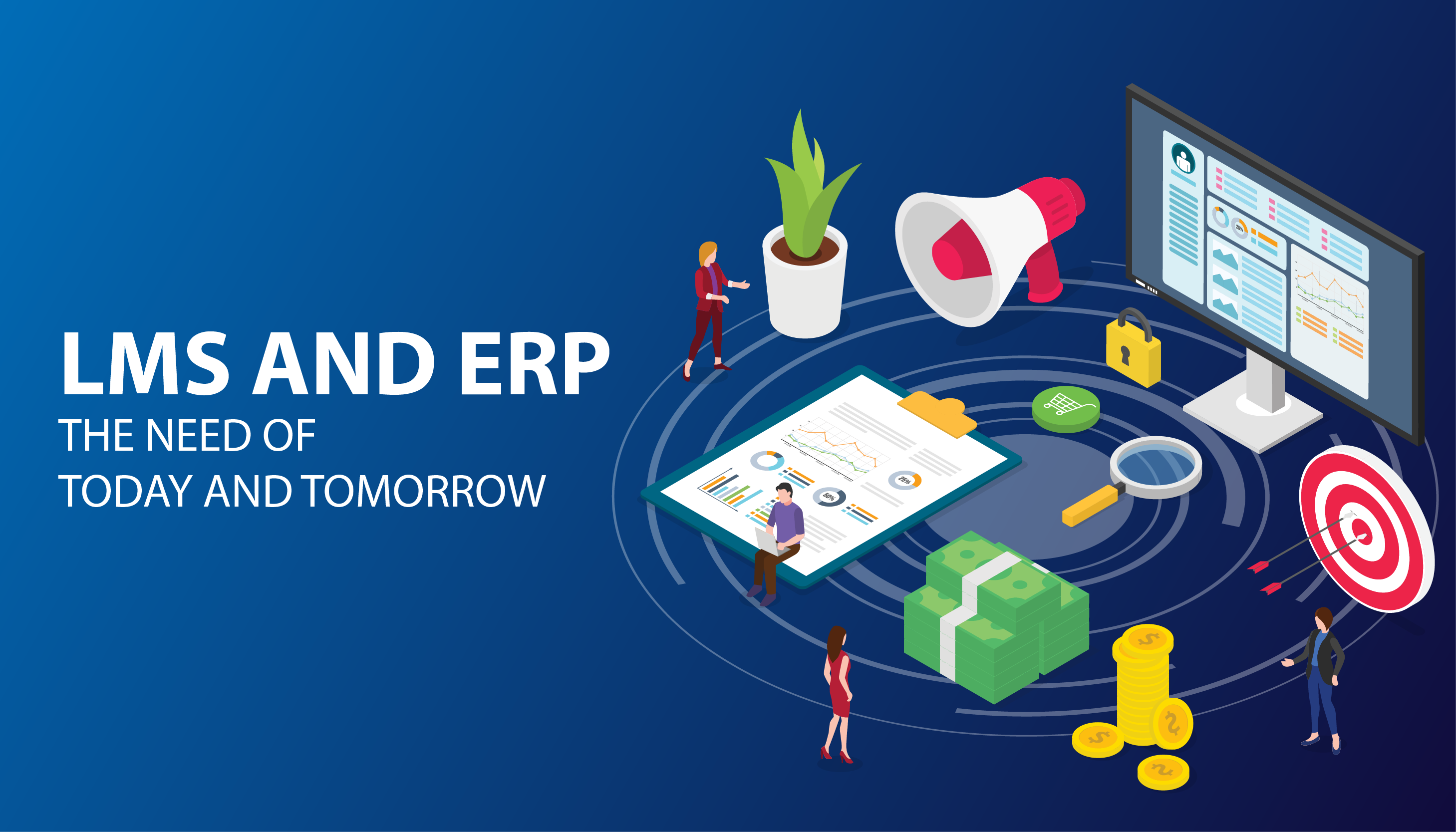LMS and ERP : The need of today and tomorrow
The global market is changing, and the impact of technology on the world has been stronger than ever. Technology has revolutionised every sector. In FY 2018, the IT-BPM industry was the largest contributor to the total exports of the country. Additionally, this tech-boon has had a productive impression on the education sector. Technology has given birth to the Ed-Tech sector and has caused the realm of E-learning to advance by the hour.
In this article, we will explore the two quintessential tools, LMS and ERP, which have revamped the journey of learning and businesses across the globe.

What is LMS, and what’s in store for you through LMS?
The term LMS is the abbreviation for Learning Management System. The meaning of this is pretty much in the name itself.
Well, this software helps you deliver trainings through an electronic mode. More and more corporate companies and educational institutes have rooted for online training and given the ongoing COVID crisis, this approach seems ideal because it can be tailored according to one’s requirements.
These online training modules are delivered via a computer through the internet or by a networked solution within the organization.
LMS has remoulded the notion of training. A couple of years ago, the word ‘training’ would probably connotate you with the idea of a bunch of students sitting physically in a classroom and attending a session. From a corporate angle, one would think about a bunch of professionals attending a series of one-day workshops. But today, this scenario is hardly a preferred choice. LMS has revamped the traditional way of learning by opening a zillion opportunities to learners from any part of the world. Today one can acquire training in the form of recorded lectures, videos, etc from companies and instructors from any part of the world and at any time. At the same time have access to the necessary material needed for the training module, for eg; textbooks, references, test-series.
Unlike traditional learning that permits you to take up only one course at a time, virtual learning enables you to take up multiple certified courses and complete them at the comfort of your home and time. According to Forbes, there’s no possibility that corporate training will ever return to physical classrooms.
The features of an effective LMS are
● Integrated virtual classrooms
● Tailored Course Content
● Easy to track the learner’s progress
● Technical assistance is merely a few clicks away.
● Privacy assurance and secured storage of course content
● One Stop for all; there’s no need of having multiple systems as all the communication could be handled through a single LMS system.
Let’s dive into the second quintessential tool, ERP
Enterprise Resource Planning (ERP) is a system that has reshaped and eased functions by providing a central integrated system.

Features of ERP
● Eases the workflow.
● Shares real-time insights and generates automated tasks.
● Enhances student experience.
Reasons to implement ERP in your Educational Institute
ERP solutions offer a set of tools that not only modernizes the campus but also empowers the management process so that the students and the teachers have a smoother engagement at a very cost-effective price.Here are a few benefits listed,
Simplifies the Paperwork
● Admission Process
The Admission process in educational institutes is a tedious task and often complicated and time-consuming. But, gone are the days, where one who individually sat with the marksheets of the candidates to declare the merit lists. Through the ERP software, the data is processed into automated tasks and the best-fit are enrolled.
● Fee Payments
Collection of fees is an essential process and if not done diligently could complicate the entire process and burden the administrator. After introducing an ERP system, fee collection is hassle-free and less time-consuming. Additionally, its automated system generates alerts and notifies the students and their parents about the confirmation of payments or any outstandings.
Centralised Data Management
Since educational institutes need to store a humongous amount of data on students, exams, course content; managing this data in an organised form is crucial. An ERP system manages this easily and also enables the sharing of this data with multiple authorised staff.
Data Privacy
Since the information stored is extremely sensitive, for instance, student details, fee details, alumni records etc. An ERP system stores this data securely and gets it backed up as well.
Why is the integration of LMS and ERP the need of the hour?
Surrounded by an ongoing pandemic that has made the market even more competitive. To emerge as a successful educational institute, the integration of LMS-ERP is the door you should knock. The approach doubles the value of your institute at a cost-effective price, unlike traditional learning.Regardless of the size of the institute, they not only help you ease the management but incorporate skills and produce future-ready individuals, who are well versed with the dynamics of the world.
